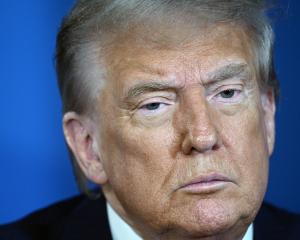
An unprecedented three referendums could be included in 2020 decision-making as two of the major social issues of our time - and one mildly vexatious political football - reach the next stage of the democratic process.
While the referendums would be held via postal vote, and not at the same time as the general election, they would inevitably be seen as part of the major decision.
It was Justice Minister Andrew Little who let slip that consideration would be given to rolling referendums on recreational marijuana use, euthanasia and MMP into one bumper package.
Call it killing three birds with one stone.
That makes sense - there will presumably be cost savings by holding the three referendums at the same time, and it can fairly be argued that the two social issues, in particular, are too important to be sidelined for much longer.
But are we also at risk of diluting the discussion around those issues by making them part of the same election cycle?
Mr Little deserves credit for at least signalling a willingness to swing into action. And on the first two issues, action is overdue.
Following a Cabinet report on legalising marijuana for personal use, the Government has announced it will go to a binding referendum in 2020.
However, there will still need to be robust debate around how far to go with liberalisation.
Euthanasia has become a hot-button topic - witness the flow of letters to this newspaper following a recent Faith and Reason column on the topic last year - and Act leader David Seymour has been driving the End of Life Choice Bill, which appears certain to be destined for a referendum.
While the move to legalise recreational marijuana use seems to be broadly popular - although the extent to which it will be legalised may prove a sticking point - the euthanasia debate shapes as one with more miles to travel.
It is more complex than many of those arguing in favour would claim.
Vastly less absorbing, from the point of view of social debate, is the thought our MMP system needs tweaking to both reduce the 5% threshold to 4% and abandon the ''coat-tailing'' provision that allows a solitary elected MP to drag party mates into Parliament with them. It is fully six years since the Electoral Commission proposed those changes.
National has predictably suggested Labour wants to push through the threshold change to protect its coalition partner, on-the-bubble New Zealand First.
That party lost its place in Parliament after 2008 after winning 4.07% of the vote. And it is hard to see average New Zealand voters getting as engaged in a debate around a change to a voting process as they will in the marijuana and euthanasia discussions.
New Zealand does not have a long history of referendums.
Just 10 have been initiated by the Government - from betting in 1949 to the flag change in 2016 - and five by citizens.
But in a functioning democracy, they can be tools for engaging the populace and effecting real change.
If New Zealanders feel passionately for or against the legalisation of personal marijuana use, the right to assisted dying, or the process by which their representatives are elected, they need to get ready to vote.
Power is in their hands, and they need to use it.
Comments
One media organisation that controls a significant portion of the country's media is firmly in the liberal camp and pushing hard on Cannabis reform. The important voice of the experts may be pushed aside. There is a vast difference between allowing someone to grow a plant in their garden and establishing an industry geared towards significantly growing the user base, so we need to know up front what we are voting for.
What happened to Winston and all his talk/ a PM that's in la la land/ vote for them/ ha ha












